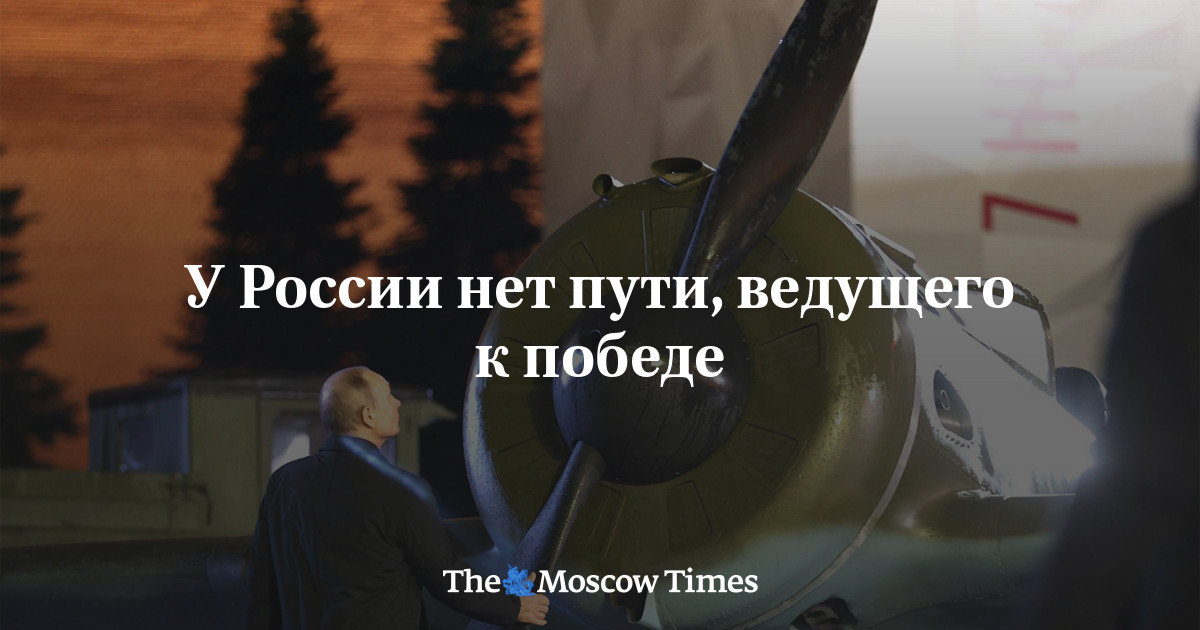“Don’t write Russia off,” one European diplomat with extensive experience in Moscow recently warned. And this is a fair point.
Putin’s invasion of Ukraine did not go according to plan. But Russia remains a huge country with abundant resources—and yet a ruthless, brutal government. Ukrainian intelligence services believe further waves of mobilization could allow Russia to deploy a two-million-strong army to resume its offensive later this year.
President Vladimir Zelensky recently warned that Moscow could soon make a new attempt to seize Kyiv.
But even a breakthrough on the battlefield cannot bring Russia a lasting victory. Imagine that Putin’s forces performed some kind of terrible miracle, defeated Ukraine and overthrew the Zelensky government. What then?
In this case, a wounded and isolated Russia will be doomed to many years of guerrilla warfare, in comparison with which events in Afghanistan will look like a picnic. The occupying forces or the collaborationist government in Kyiv will be under constant attack.
“Victory” will plunge Russia into long-term disaster. Putin and his allies continue to take solace in the history of how Russia suffered terrible defeats in battle at the hands of Napoleon and Hitler, but ultimately won the wars.
But those wars were defensive. Knowing that they had nowhere to retreat, the Russians fought to the bitter end. This time, Ukrainians are defending their homeland.
Moreover, in its previous “great wars,” Russia was part of a larger European coalition. But now, as pro-Kremlin strategist Dmitry Trenin noted in a recent article, “for the first time in Russian history, it has no allies in the West.”
In fact, the anti-Russian coalition extends far beyond Europe. Trenin adds grimly: “The degree of cohesion between English-speaking countries and European and Asian allies around the United States has reached a level never before seen.”
In this new situation, Russia is forced to look for friends in Asia and Africa. The Kremlin takes some comfort from the fact that leading countries in the Global South – such as China, India, South Africa and Indonesia – have not joined international sanctions against Russia. But with the exception of Iran, these countries have not provided Russia with military support that would match the flow of Western weapons into Ukraine.
Reliance on the global South implies a reorientation of the Russian economy, which over the past 30 years has been built primarily on energy exports to Europe. Russia is also dangerously dependent on China.
How did Putin get his country into this mess? The roots of the problem lie in its inability to come to terms with the loss of its great power status—something other European states have already gone through.
Some might say: Brexit shows that Britain has not yet completed this journey. But, from the point of view of a blow to his own interests, this is nothing compared to what Putin did to Russia. An equally catastrophic equivalent would be a British invasion of Ireland.
The European order that Putin remembers with nostalgia was built on great power rivalry. Unable to understand the new system, based on cooperation between states under the auspices of the EU and NATO, Putin ultimately isolated Russia from the entire European continent. According to Georgetown University’s Angela Stent, “Putin has closed the window to Europe that was opened by Peter the Great” in the 1700s.
If Putin were willing to accept that Russia is now below the superpowers, it could play a balancing role in world politics. Instead, Putin invaded Ukraine. The irony is that Russia will likely emerge from this war even weaker and less fit to be a superpower.
The desperate situation in which Russia finds itself has given rise to a certain nihilism among part of the country’s elite, and TV presenters fantasize out loud about nuclear war and Armageddon. Russian strategists who are increasingly making the case for continuing the war do so not because they see a real prospect of victory, but because the thought of defeat is too painful.
In his grim article, Trenin, a former Russian military intelligence colonel and then director of the now-shuttered Carnegie Moscow Center, argues that “although a theoretical path to surrender exists” for Russia, this option is unacceptable because it would entail “national catastrophe, possible chaos and unconditional loss of sovereignty.”
Fear of such an outcome leads Trenin to conclude that Russia has no choice but to continue to fight as “a warrior country defending its sovereignty and integrity,” even though this would require “great sacrifices” for “many years”. Following this bloody path, Trenin argues, will require “the unconditional patriotism of the elite.”
But this is a very peculiar definition of patriotism. What patriotic Russian would want to continue sending his countrymen to their deaths in a brutal war of aggression that makes the country poorer, more isolated, dictatorial and hated throughout the world? The real patriots of Russia are those who are determined to stop Putin and his war (many of them are in prison or in exile). Only when this happens will Russia have a chance to restore its moral, economic and international status.

